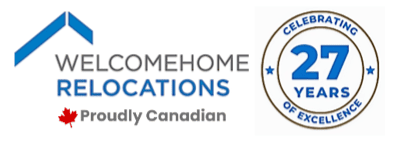
Banks play a key role in Canada’s financial system and economic development. Banking in Canada is widely considered the most efficient and safest banking system in the world, ranking as the world's soundest banking system for the past three years according to reports by the World Economic Forum.
The six major banks include TD Canada Trust, Scotiabank, Canadian Imperial Bank of Commerce (CIBC), Bank of Montreal, RBC Royal Bank and National Bank. There is also an International bank, HSBC with several locations throughout Canada.
Below are details on how to set up a bank account:
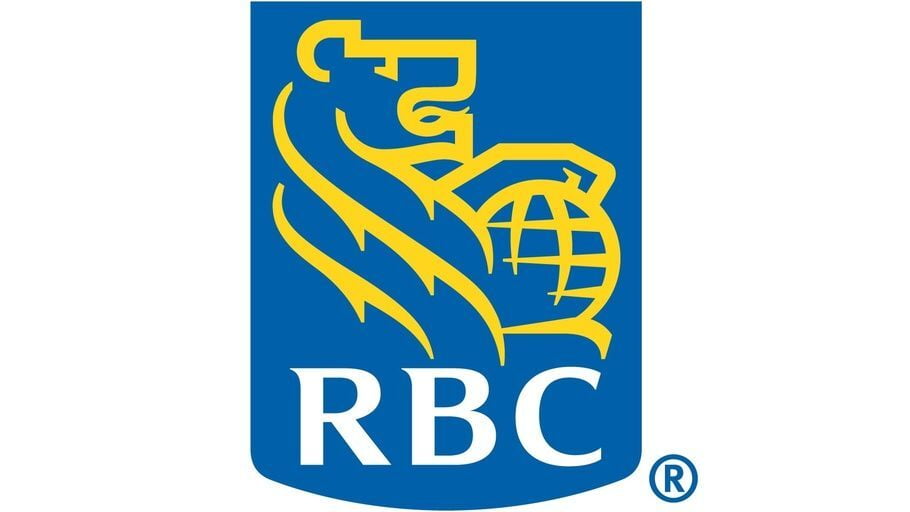
RBC
To set up your account before your arrival, please contact RBC and set up a phone appointment. You will need to visit a local branch to finalize and activate your account, get your bank cards, etc. Click here for more information.
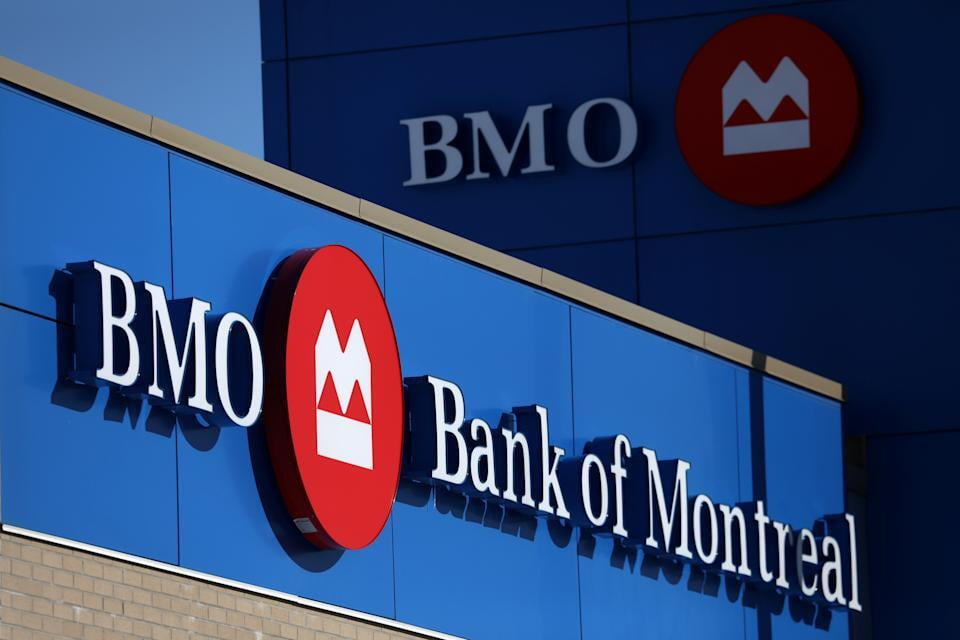
BMO Bank of Montreal
BMO allows customers to open an account before arriving in Canada by completing and mailing in a set of forms. Click here for more information. Once the account is set up, you are allowed to make one international wire transfer into the account while still in your home country.
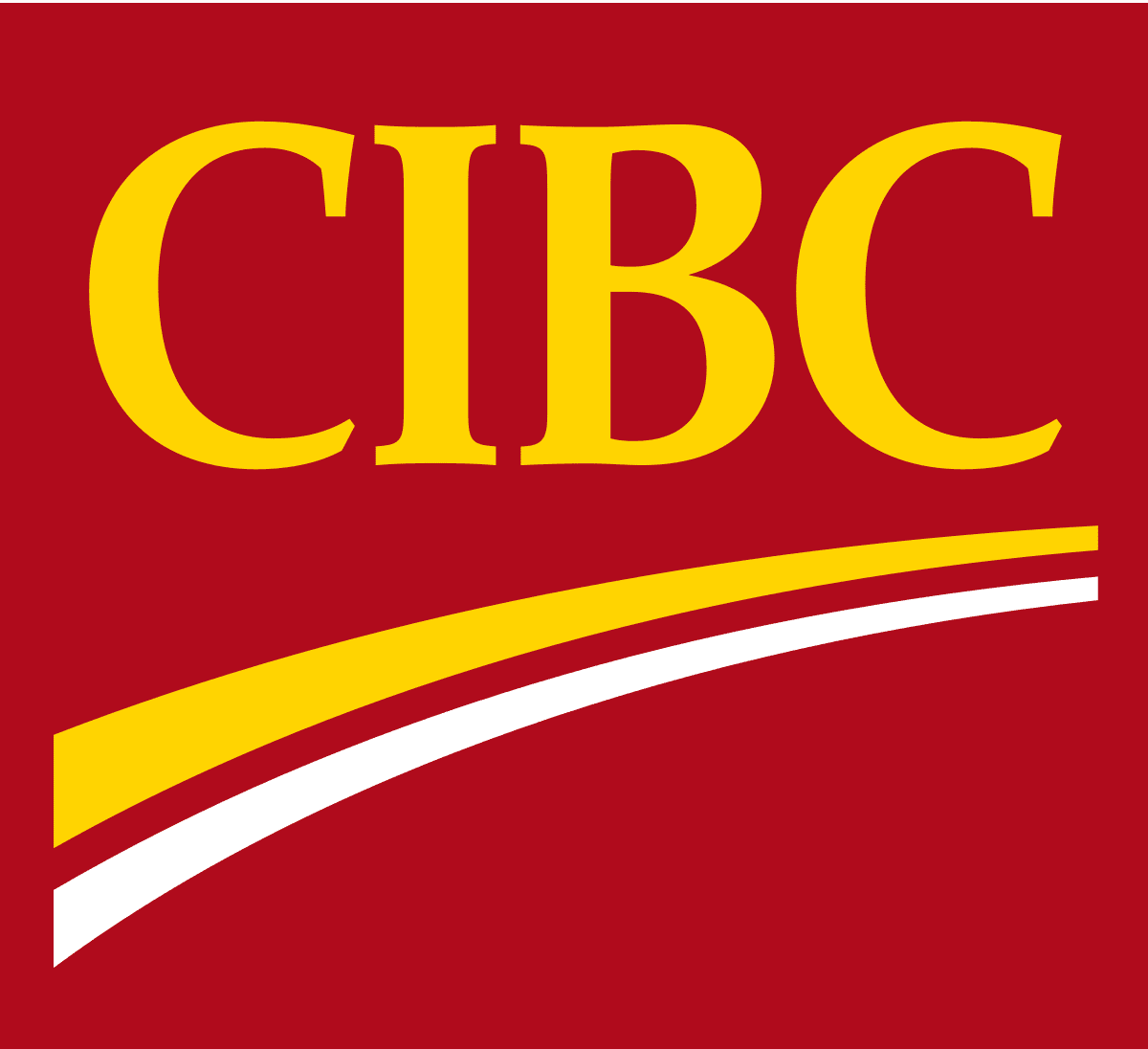
CIBC
Newcomers to Canada can go online and start the process of opening an account. It is recommended to make an appointment to show your ID in person to get your account activated.

TD Canada Trust
You can start the process online, find a branch close to where you will be living and start on account on Easyweb. The account will be frozen until you can visit the branch (please book an appointment) and provide proof of your identity. Please visit: Banking for newcomers to Canada.
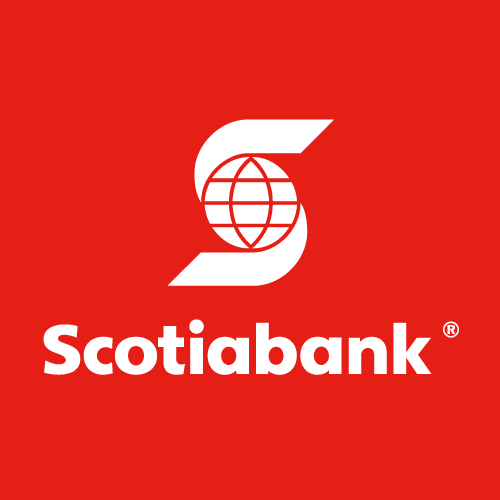
Scotiabank
Scotiabank has an International Account opening program for the following countries - Chile, China, Columbia, France, Germany, India, Mexico, Pakistan, Peru, Philippines, Saudi Arabia, Spain, UAE, UK, Venezuela and Vietnam. People from the eligible countries can open an account online. It is basically a holding account, so they can send funds to Canada for immigration purposes or convenience. For more information please visit: International Account
Scotiabank is proud to be a founding member of the Global ATM Alliance, along with Bank of America, BP Paribas, Barclays, Deutsche Bank 24 and Westpac. This means that members have free access to withdraw cash from participating member ATMs without paying access fees.
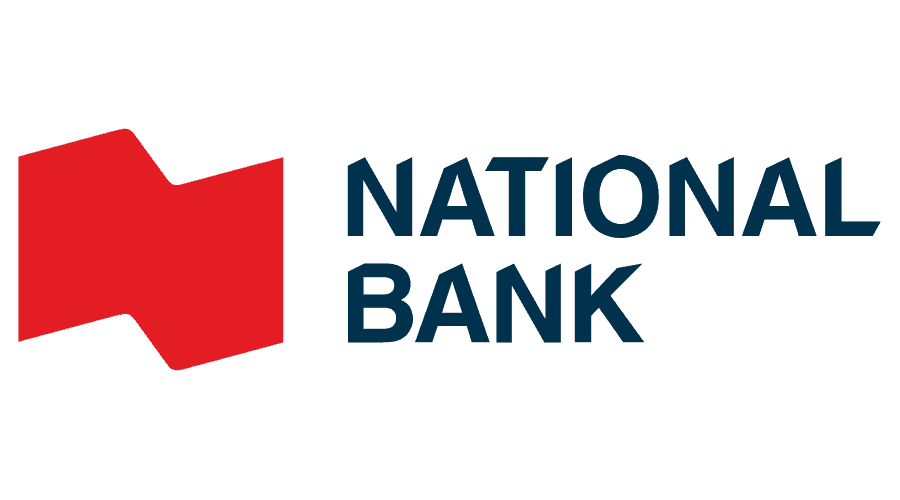
National Bank
You can open an account online and then visit the branch once you arrive in Canada. Please click here and fill out the application. You will receive an email showing if your application 11has been accepted. If your application is accepted, you will receive your debit card etc. in the mail in 5 to 7 days. You can begin this process as soon as you arrive in Canada. Click here for more information.
Opening a Bank Account
It is important to open a bank account as soon as possible to facilitate any financial transactions from your home country and to start establishing yourself in Canada. Most banking institutions require a Social Insurance Card to open up a bank account; however, in your situation, you will likely want to open an account before you have one.
When you go to the bank to open an account, you should bring with you the following:
- Passport and work authorization form
- Letter from your employer verifying your income and stating the terms of your contract
- 2 pieces of ID
- Any letters of reference from bank(s) in your home country
Financial Consumer Agency of Canada
For detailed information on banking in Canada please consult the FCAC website.
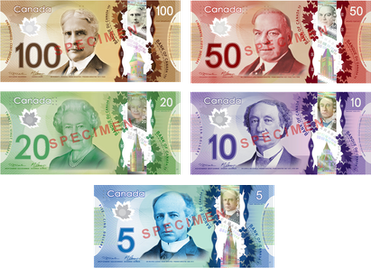
Currency
The official currency of Canada is the Canadian Dollar. There are 100 cents (¢) in a dollar.
The common bills, all paper money, are the same size but all are a different colour.
Bills are printed in the amounts of $5, $10, $20, $50 and $100.
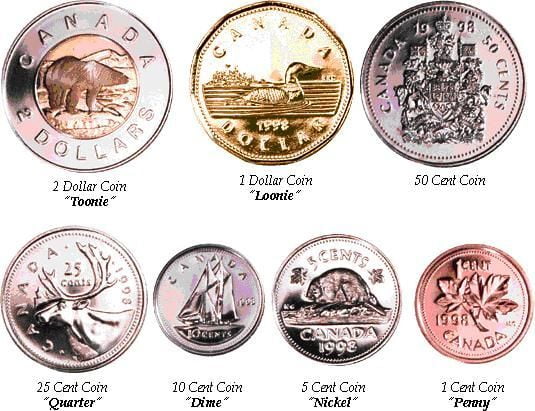
Canadian coins, all minted in difference shapes, sizes and colours. The Canadian penny was removed from circulation in 2012.
Due to the removal of the penny, all cash payments are rounded up, or down, to the nearest five-cent increment. For example:
The rounding up happens on cash transactions only. Debit, credit or payment cards are processed to the exact total amount. If your total is $1.01 you will pay $1.00
If your total is $1.02 you will pay $1.00
If your total is $1.03 you will pay $1.05
If your total is $1.04 you will pay $1.05
If your total is $1.06 you will pay $1.05
If your total is $1.07 you will pay $1.05
If your total is $1.08 you will pay $1.10
If your total is $1.09 you will pay $1.10
Credit Reports and Scores
In Canada, a credit-reporting agency collects information whenever you:
- Take out a loan
- Use a credit card
- Take advantage of a “buy now, pay later” offer
This becomes part of what is called your credit history. It includes information about whether or not you make your payments on time, and how long it takes you to pay back money you have borrowed.
Having a good credit history and credit score is important. Banks and other financial institutions usually check your credit history and score when deciding whether or not to give you a loan or credit. Landlords may use your credit history to decide whether or not they will rent to you. If your credit history or score is poor, a lender may refuse to give you a loan or you may have to pay a higher interest rate.
You should start building a credit history as soon as possible. The best way to start building your credit is to get a credit card. However, to maintain a good credit history, make sure to always pay your bills in full and on time, including rent, utilities, cable and insurance premiums. If you are unable to pay off the entire balance, make sure that you at least make the required minimum payment. You should also avoid making numerous applications for credit. Since every credit application is noted in your credit record, making multiple applications within a short period could affect your credit rating.
The FCAC website has more information on credit reports and scores.
There are two types of accounts to choose from - chequing accounts and savings accounts. Each account has different features that help you to do different things. For more information, please consult your bank advisor or visit: Bank Accounts. You can use the Government of Canada's Account Comparison Tool to get a better idea of what type of account might be best for you.
Using your Bank Account
Debit Cards
You can use your debit card to pay for things in many places in Canada. For tips regarding the use of your debit card, consult the FCAC website.
Cheques
In Canada, you can use your cheques:
· To pay bills by mail
· To pay larger amounts (for example, your rent)
· Where credit card or direct payments are not accepted
You need to have enough money in your account when you write a cheque. If not, the cheque might be returned to your for non-sufficient fund (NSF) and you will be charged a fee by your bank. You may also be charged a fee by the person/company you wrote the cheque to.
Your bank may apply a “hold” (waiting period) on money you deposit by cheque. Cheques from outside Canada can take much longer to clear and foreign cheques are often held for 30 days.
Other common types of cheques are:
· Post-date cheques: These are cheques that have a future date written on them (they are usually used to pay rent). Post dated cheques cannot be cashed until the date that is written on them, and you can cancel chques that have not been chased by calling your bank.
· Certified cheques: these are chques that have been guaranteed by your bank
Credit cards
Credit cards can be very useful. You will probably save money and better manage your finances if you know how your credit card works. Financial institutions offer many types of credit cards. To compare the features and costs of different cards, use the FCAC’s Credit Card Selector Tool.
If you do not have Canadian credit history getting a credit card can be difficult. You will likely need to start with a small credit limit until you build your credit rating in Canada. Make sure you pay your bills on time and for the full amount. This will help build your credit.
Before you make your final choice, make sure you know and understand all the terms of your credit card, including:
· the interest rate you must pay on purchases, cash advances and balance transfers
· the manner in which interest is calculated
· the annual fee and other applicable fees
· the grace period (the number of days by which you can be late with a payment)
· the minimum monthly payment
· the consequences if you make your payments late
· the other features, such as introductory offers
· the manner in which your payment will be applied
· the way you can proceed to make a complaint if you have a problem with your credit card
Applying for a Credit Card
You can apply for credit cards at most banks either online or in person. Credit cards let you spend money on credit and be billed for it within a month. If you pay the full amount back by the due date, you will not be charged interest. If you use your credit card for cash advances, you will be charged interest starting on the date you withdraw the money and continue to be charged interest daily until you pay off the entire cash advance amount.
Tips for economical and secure credit card use:
- To avoid paying interest charges, pay the balance on your credit card in full every month before the due date indicated on your statement.
- If you have a smart credit card (i.e., with a microchip), never reveal your PIN (personal identification number) to anyone.
- Avoid holding several credit cards, as this will decrease your borrowing capacity.
- Always remember that if you spend more than you can afford, you will have to pay interest.
Personal bank loans
Personal loans can help you mange payments such as:
· Car
· Home renovation
Before signing a loan agreement, make sure you clearly understand your duties when it comes to:
- Late or missed payments
- Cost of borrowing
- Payment of fees
- Interest rate
For more information on personal loans, please visit the FCAC website.
Lines of Credit
A line of credit lets you borrow money as needed, up to a maximum credit limit. You are charged interest from the day you withdraw money and until you pay back the loan in full.
Debit Card vs. Credit Card
In Canada, it is possible to use two different type of cards to pay for your purchases:
- A debit card debits the funds from your account immediately. This type of card is generally used to make everyday purchases by withdrawing funds from your account at an automated banking machine or point-of-sale (in-store) terminal. You have immediate access to the funds on deposit in your account. Consequently, if your account does not contain sufficient funds, the withdrawal or purchase will not be allowed.
- A Canadian credit card allows you to purchase goods or services now, and pay for them at a later date. A minimum amount (a portion of the total amount owed) must be paid every month; interest is charged on the balance. If, however, you repay your balance in full before the due date, no interest is charged.

